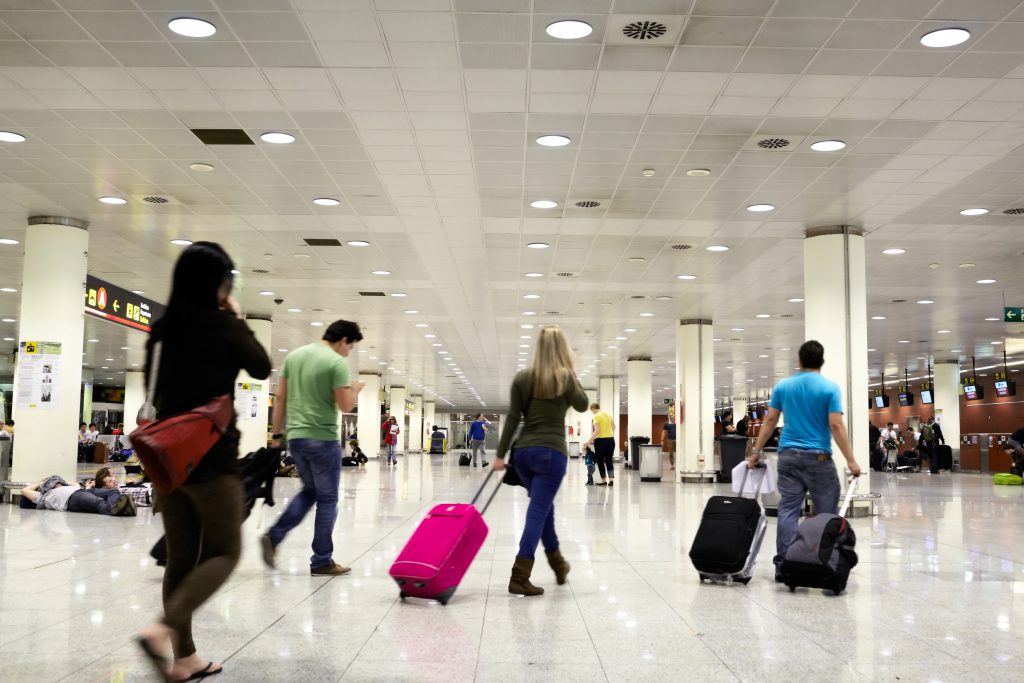Your family could be at its most vulnerable this holiday season. Online security is incredibly important. Your identity could be stolen. Your bank accounts and credit cards could be stolen. And once that information is out there, it never goes away.
But there are ways that you can improve the general security of your family. Here are some online security best practices from your friends at Phoenix Internet.
1. Don’t Use Public WiFi If You Can Help It
Public WiFi security risks are simply too great to make up for the convenience. Using public WiFi can be dangerous, especially if the connection isn’t password-protected. Someone could be looking at your browsing activity and intruding on the information that you’re sending and receiving. This isn’t true for all public WiFi, but it’s a good idea to be cautious when connecting.

Here are some WiFi security tips. If you do use Public WiFi (and you might have to when you travel, whether at the airport or on a road trip), make sure you don’t share any information with the other computers on the network, and always make sure it’s properly password protected.
A better alternative to public WiFi is to use your own phone as a hotspot — make sure you have enough data! Most phones today can be used as a wireless access point for your laptop and even desktop computer, and you can control the connection yourself.
2. Be Careful When Ordering Online
Who doesn’t do their holiday shopping online these days? Some sites are safe and some sites are not. Credit card companies like Capital One now let you create something called a “virtual card,” which lets you make payments without exposing your real credit card number.

Apart from that, look up reviews of sites before you make a purchase. A very legitimate-looking site could actually be a scam; either they are trying to collect personal information, or they just ship faulty goods. Always use a credit card rather than a debit card online, because with a credit card you can easily initiate a chargeback, and you don’t run the risk of losing all the money in your account!
During the holiday season, keep checking your bank statements and credit card statements for any unusual charges. When it comes to theft, the faster you catch it, the easier it is to fix.
3. Keep Checking Your Credit Report
During the holiday season, you may want to invest in a credit alert service. They’ll tell you if there’s any suspicious activity on your accounts. By checking your credit report regularly, you’ll be able to catch problems as they occur. This is an important piece of online security best practices since many of us order gifts and gadgets online around the end of the year.
This is a good idea in general, but it’s even more important during high volume times like the holidays. Remember: it’s not just that you could get hacked. Vendors, such as large retail stores, could also get hacked because they’re dealing with a busy holiday season.
Key Takeaways
- Don’t connect to unsecured WiFi, and be cautious when connecting to WiFi when traveling. It’s often better to use your phone as a hotspot than to connect to public WiFi.
- Be cautious when ordering from unknown vendors online; the holiday season isn’t the time to experiment! Look up reviews and protect your credit card information.
- Keep checking your credit report. Your credit report is the first place that any suspicious activity will show up.
If you follow general network security best practices (don’t connect to unsecured WiFi, keep a virus scanner active), you should be able to avoid the worst of the dangers for your family this holiday season. But don’t forget that having a good Internet provider can help, too. Contact Phoenix Internet if you’re looking for fast, secured wireless service, or short-term connection if you live in Arizona part-time.
